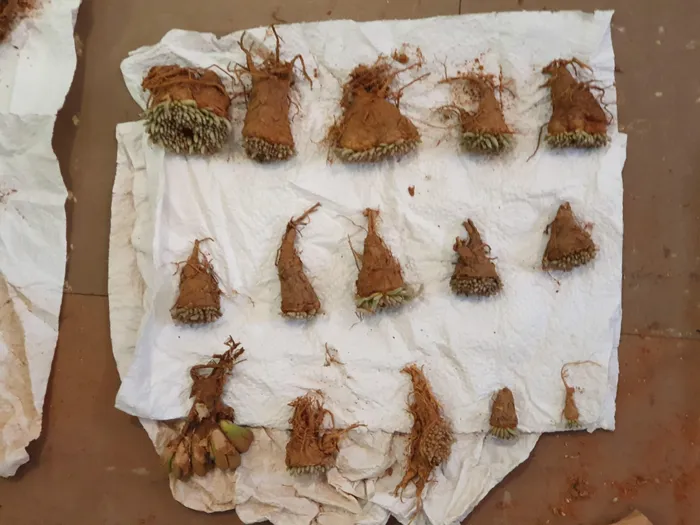CapeNature’s ongoing battle against biodiversity crime in South Africa

CapeNature collaborates with partners to tackle biodiversity crime head-on. Pictured: Avonia sp and Conophytum sp seized from a trafficker at the airport.
Image: Supplied
CapeNature continues the fight against biodiversity crime, which is often overlooked, but its impact is devastating. This comes after the government entity registered more than 10 cases in three months.
According to CapeNature, biodiversity crime harms South Africa’s unique ecosystems. Illegal plant trade in the Western Cape, poaching, and even picking wildflowers in protected areas without a permit all contribute to the degradation of biodiversity and the loss of crucial natural resources.
Between April and June 2025, CapeNature officials registered 12 cases (eight flora, four fauna) and issued 23 fines. Four fines related to contraventions of the Marine Living Resources Act, and 19 for contraventions of the Nature Conservation Ordinance (15 for wild animals and the others for flora).
“These statistics reflect the seriousness of biodiversity crime in the province and our ongoing efforts to strengthen compliance and enforcement along with our partners,” said Western Cape Provincial Minister of Local Government, Environmental Affairs and Development Planning, Anton Bredell.
“Every action we take to stop the illegal harvesting and trade of species contributes to conserving the Western Cape’s globally significant ecosystems. We are especially appreciative of the many partnerships we have with other government agencies, conservation partners, industry groups, and communities who assist us in these efforts.”
The Cape Floristic region, a UNESCO World Heritage Site and one of the world’s six floral kingdoms, is in the Western Cape. Despite this, over 50% of the province’s ecosystems and nearly 16% of its species are classified as threatened.
CapeNature said illegal activity places additional pressure on already vulnerable landscapes, impacting biodiversity, local economies, and food security.
In the Western Cape, CapeNature collaborates with partners to combat biodiversity crime, encompassing both flora and fauna.
The entity has been involved in various operations recently in support of the South African Police Service and the Hawks. Specifically on the illegal succulent trade, CapeNature collaborates extensively with various conservation partners.
Joint operations between CapeNature, the Northern Cape Department of Agriculture, Land Reform and Rural Development, SANParks, the Department of Forestry, Fisheries and the Environment (DFFE), and SAPS Stock Theft and Endangered Species units are also conducted, focusing on addressing the illegal trade in reptiles and succulents.
Education and awareness drives have been implemented among local communities situated in bio crime hotspot areas.
The public can support biodiversity crime prevention by being vigilant and reporting suspicious activities to nature conservation authorities and the SAPS.
Meanwhile, four foreign nationals - Mark Daddy, 43, Raphael Mhashu, 25, Simbarashe Charanelura, 33, and Elton Ngwanati, 34 - were sentenced to 15 years' imprisonment for poaching 303 specimens of the critically endangered Clivia mirabilis in the Namakwa region.
The Clivia mirabilis, also known as the miracle bush lily or Oorlogskloof bush lily, is a rare species native to parts of the Northern and Western Cape. Highly coveted in the illegal global plant trade, its black-market value is estimated to be between R6 million and R30 million.
DFFE Minister Dr Dion George noted that the conviction shows organised crime is exploiting more of SA's rare plants, beyond succulents, due to high international, especially Asian, demand. These crimes threaten biodiversity, disrupt ecosystems, and push already vulnerable species closer to extinction.
“This conviction is a critical milestone in our fight against environmental crime,” George said. “It sends a clear message: those who profit from exploiting our natural heritage will face serious consequences.”
He said the department will continue to strengthen enforcement, build international partnerships, and work closely with police and prosecutors to stop the illegal trade in wildlife and plants.
thobeka.ngema@inl.co.za